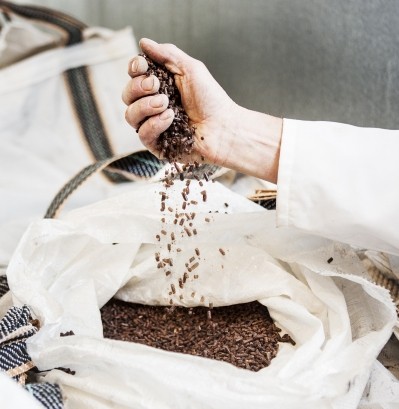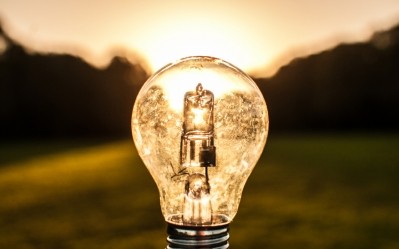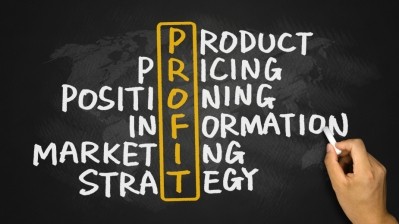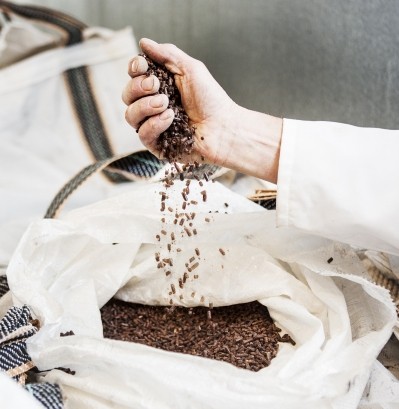New dawn for gas to feed protein as Calysta flags up 2017 production start date
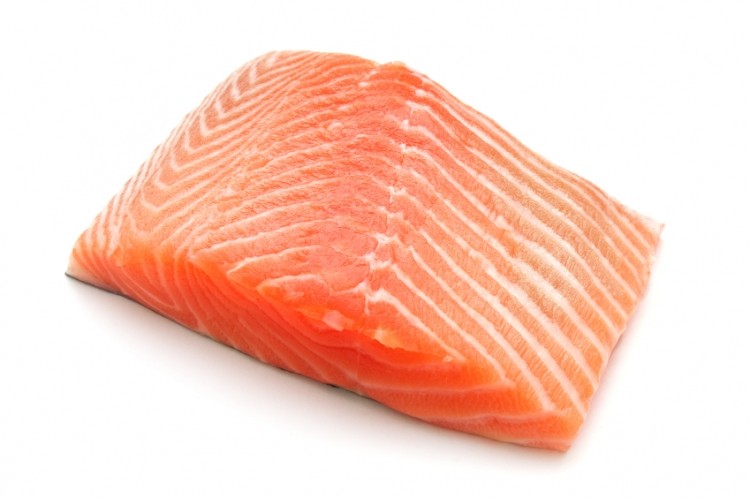
The US company, a developer of natural gas conversion technology using methane for fuel and chemicals, bought Norway based BioProtein A/S, in May last year.
“The primary driver for acquiring BioProtein was to merge our expertise in fermentation biology with a commercial scale fermenter. BioProtein had a lot going for it, including an EU product registration for microbial protein that was specific to its process, strong customer relationships with salmon feed producers in Norway, and an IP portfolio that StatOil spent years developing.
We are actively developing an 80,000 ton per year production plant in Europe. We expect commercial volumes to be available beginning Q4 2017,” Alan Shaw, CEO of Calysta, told FeedNavigator
The feed generated is a protein-rich biomass produced by a microbial culture with natural gas as sole nutrition and energy source.
Alex Obach, managing director at Skretting Aquaculture Research Centre (ARC), in an interview with this publication recently, says with soaring fishmeal prices, the business case for new aquaculture feed targeted raw materials is much stronger than it was 15 years ago. “So producers of algae or insect or microbial bacterial derived protein for feed, if they can generate enough tonnage volume and get the nutritional profile right, stand a greater chance of getting a hearing from fish feed producers now than in previous years.”
Methane to feed project genesis
BioProtein was the brainchild of StatOil’s Norwegian subsidiary, Norferm, which developed and commercialized the idea of using methane in natural gas as a carbon or energy source in fermentation to produce the single cell protein.
DuPont had a 50% holding in the feed producer as well.
But, despite being well received by the salmon feed industry, Norferm was forced to stop production of the feedstuff, which contains just over 70% crude protein, in 2006 due to competition from low fishmeal prices.
“In many ways, BioProtein’s fermenter tech was ahead of its time when initially developed,” said Shaw.
Work started on the original methane to feed project in the 1980s and the fermenter design was continually improved until it was built at full scale in 1999. The initial design had several challenges during start-up that required additional engineering work, design modifications, and process improvements.
“Right as these were addressed and the plant started running as hoped the market fundamentals no longer supported the plant. Fishmeal prices were low - about a third of what they are today - and the stranded supply of methane used as a feedstock was connected to a pipeline and became much more costly.
StatOil refocused on offshore oil and gas development and shut down the project. Fortunately, the IP was transferred to BioProtein, which was formed by three Norwegian academic institutions. They continued to do work validating the positive health effects of microbial protein in salmon, pigs and other livestock,” said Shaw.
He said it is clear that the market for fishmeal alternatives continues to grow. "Calysta now has a product ready to meet that demand," he added.
Amino acid profile
In terms of what the US developer brings to the gas fermentation process involved, Shaw said Calysta’s molecular biology platform allows customization of the product grown in the fermenter. “Using non-GMO techniques, we can modify the amino acid profile to create customized solutions for specific animal species or specific customers."
A Norwegian Scientific Committee on Food Safety Opinion on BioProtein, adopted in March 2006, noted: ‘BP (BioProtein) and fish meal have more similarities in amino acid content than soybean meal. When the essential amino acids are summed up, BP and fish meal deviate 1-2%. BP has 16% (11% for fish feed) higher levels of essential amino acids than soybean meal.’
The technology was developed in Norway, so Shaw says most of the feeding studies and interest have been focused on industries relevant to that country such as salmon and other cold water aquaculture species. “But we are also seeing strong interest from swine producers, shrimp farmers, and pet food producers,” he said.
The product has been fed to salmon, trout, halibut, pigs and chicken. “It performed well in all species, but the data in salmonids and pigs were most exciting. In Atlantic salmon it was shown to improve growth rates, improve nitrogen retention, and reduce inflammation associated with including soy products in the feed. For pigs, it showed improvements in fat quality and freeze/thaw stability,” added the CEO.
Sustainability
The BioProtein fermenter developed by Statoil and DuPont was a full commercial scale plant capable of producing thousands of tons per year. “We intend to duplicate this fermenter in every meaningful way. The plant will be expanded by building additional fermenters in parallel,” said Shaw.
The process can use methane produced via any method including biogas from anaerobic digestion of organic wastes, either food or agricultural. “We aim to use as much biogas as possible and will be looking to support the capture and use of biogas where it is currently flared,” he said.
Microbial protein, said the CEO, uses a tiny fraction of the land and water required by traditional agricultural commodities. “It doesn't have any negative impact on wild fisheries, and is a source of protein that truly doesn't compete with the human food chain. It is price competitive with fishmeal at a wide variety of gas and energy prices,” he added.
The capital required to get the plant operational is “in line” with other industrial fermentation projects of this scale, said Shaw.
January this year saw Calysta announce completion of a Series B financing round totaling $10 million. The investments were led by Walden Riverwood Ventures, a venture firm focused on funding global technology companies, and Aqua-Spark, a Dutch group aiming to support sustainable aquaculture projects.
